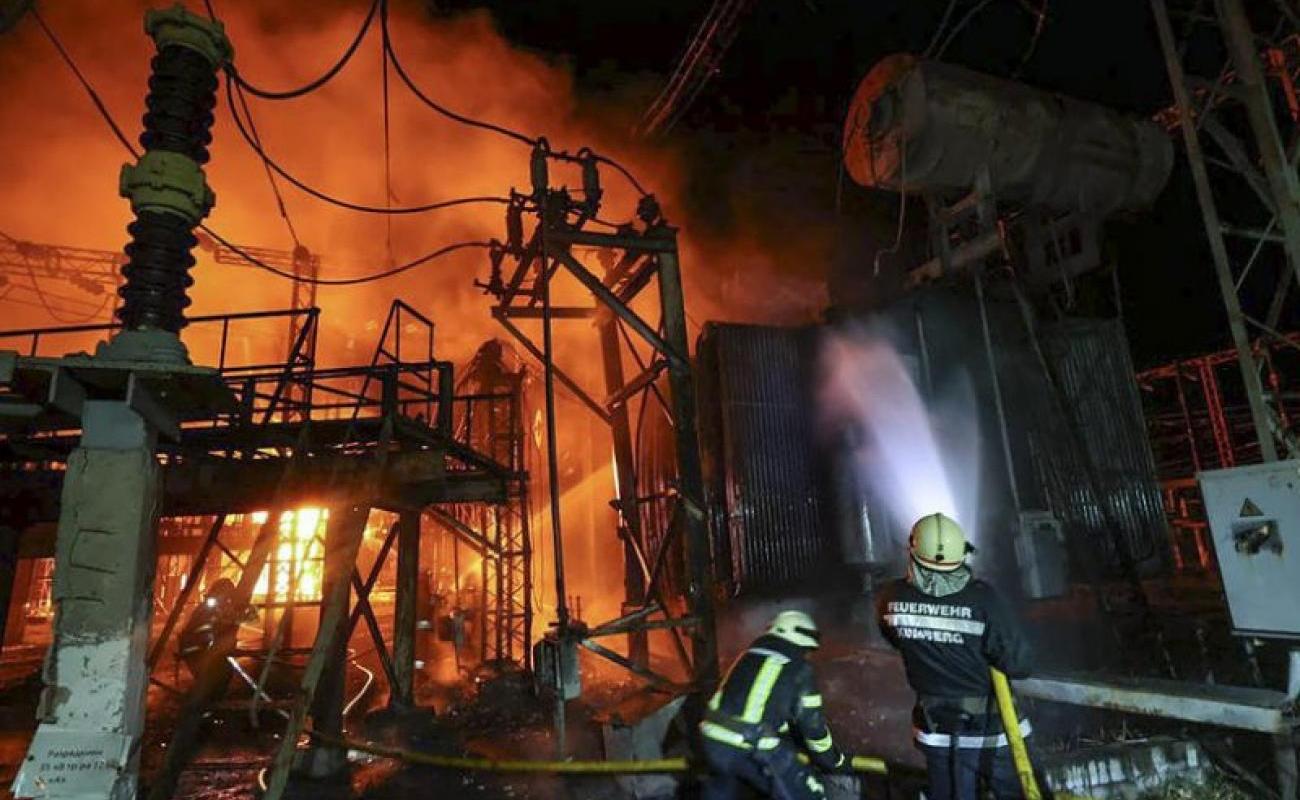Ukraine conflict: How much damage has Russia done to power supplies?

Ukrainians are prepared to endure two or three winters of power cuts caused by Russian air attacks, first lady Olena Zelenska has said.
Across Ukraine, missile and drone strikes have left millions without electricity, heating or water.
How many people have been left without power?
After facing setbacks on the battlefield, Russian forces have concentrated on attacking Ukrainian power facilities, fuel storage depots and water works.
Ukraine's national power company, Ukrenergo, says damage to electricity installations is so great that 50% of demand cannot be met.
About six million people have been left without electricity, according to Ukraine's president, Volodymyr Zelensky.
Power plants across the country - from the capital Kyiv to Odesa in the south and Vinnytsia in the west - have been hit.
The power outages have meant many people have been left without heat, as temperatures fall below zero in many parts of Ukraine.
Another power supplier, Yasno, says Ukrainians are likely to face power cuts until March.
The EU has given money to buy equipment such as generators and power cables to restore power supplies, through the Ukraine Energy Support Fund. The UK is also contributing money.
How have nuclear plants been affected?
Three nuclear power plants were disconnected from the grid for two days because of air strikes.
UN experts are also worried that shelling around the Zaporizhzhia nuclear power plant - the largest in Europe - might cause a radioactive leak.
Shells have fallen near reactors and have hit a radioactive waste storage building at the plant but have not yet caused serious damage.
Ukraine and Russia blame each other for the shelling.
Why is Russia targeting the power system?
Attacks on power infrastructure aim to damage the morale of Ukraine's civilian population, says Marina Miron, defence researcher at King's College London.
"Russia thinks that if people are freezing and desperate, they may revolt against their government," she says.
However Olena Zelenska told BBC News Ukrainians were prepared to cope without electricity if it led to their country being independent and there was a prospect of joining the European Union. Ukraine's government is urging civilians to evacuate some areas where facilities such as power stations have been particularly badly hit, rather than try and live through the winter there.
It is advising people living in the Kherson and Mykolaiv regions, in the south-west of Ukraine, to go to western and central areas of the country.
How have Russian attacks damaged health services?
The World Health Organization (WHO) says that it has recorded 703 attacks, or threatened attacks, on health facilities in Ukraine since Russia first invaded in February.
Hundreds of hospitals and healthcare facilities are "no longer fully operational, lacking fuel, water and electricity to meet basic needs," says Dr Hans Kluge, WHO regional director for Europe. He says this is putting millions of lives at risk.
The WHO has called for the opening of "health corridors" to deliver aid to Russian-occupied areas such as the Donbas, and areas newly reoccupied by Ukrainian forces, such as the Kherson region.
Are attacks on power and health facilities war crimes?
Under the Geneva conventions, an attack on civilians, or the infrastructure vital to their survival, could be interpreted as a war crime.
Dr Kluge called the attacks on health facilities a "breach of international humanitarian law and the rules of war".
European Commission president Ursula von der Leyen has said Russia's missile and drone attacks on power stations and other installations in Ukraine are "acts of pure terror" .
She said "targeted attacks against civilian infrastructure" are war crimes.
